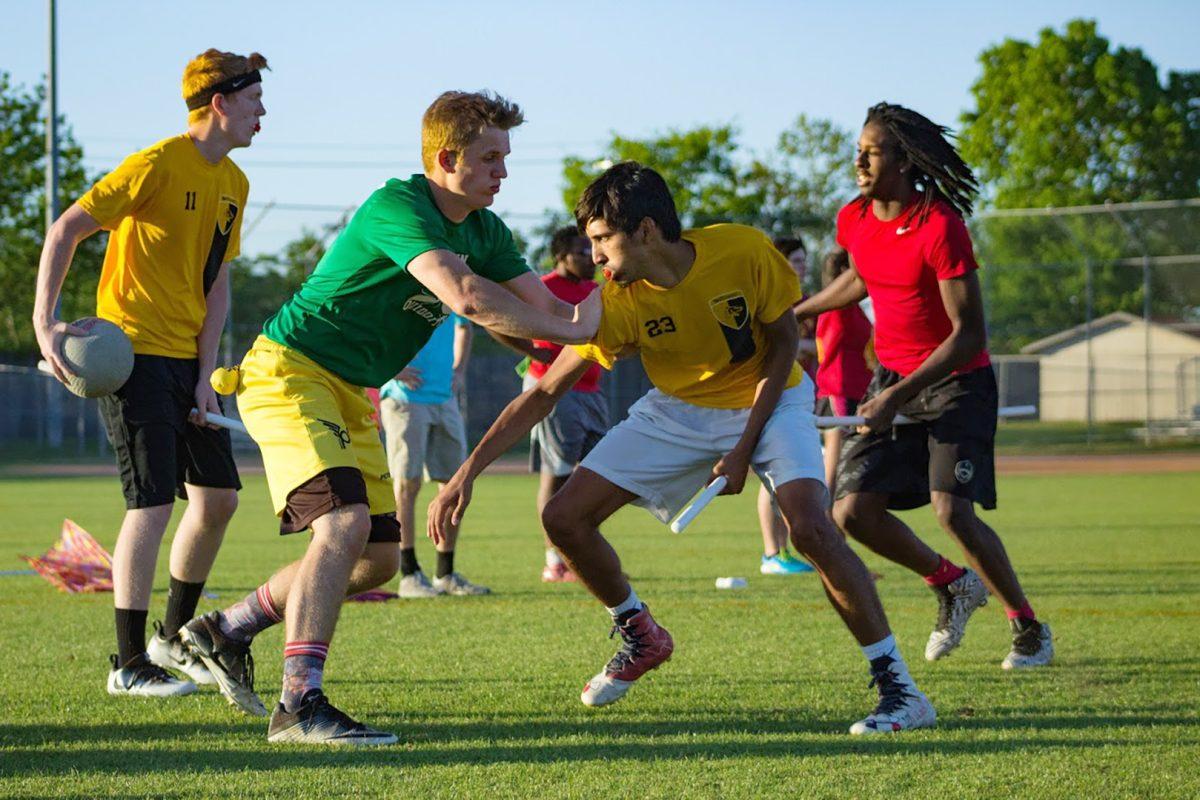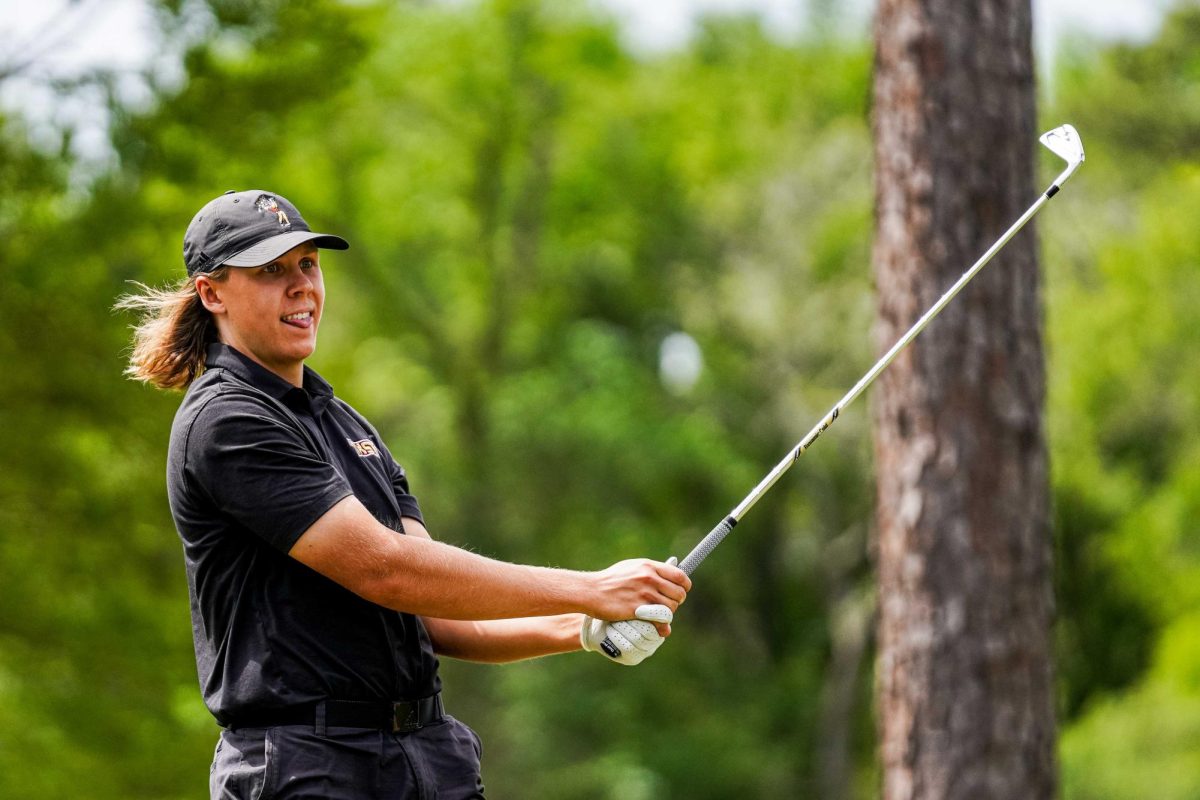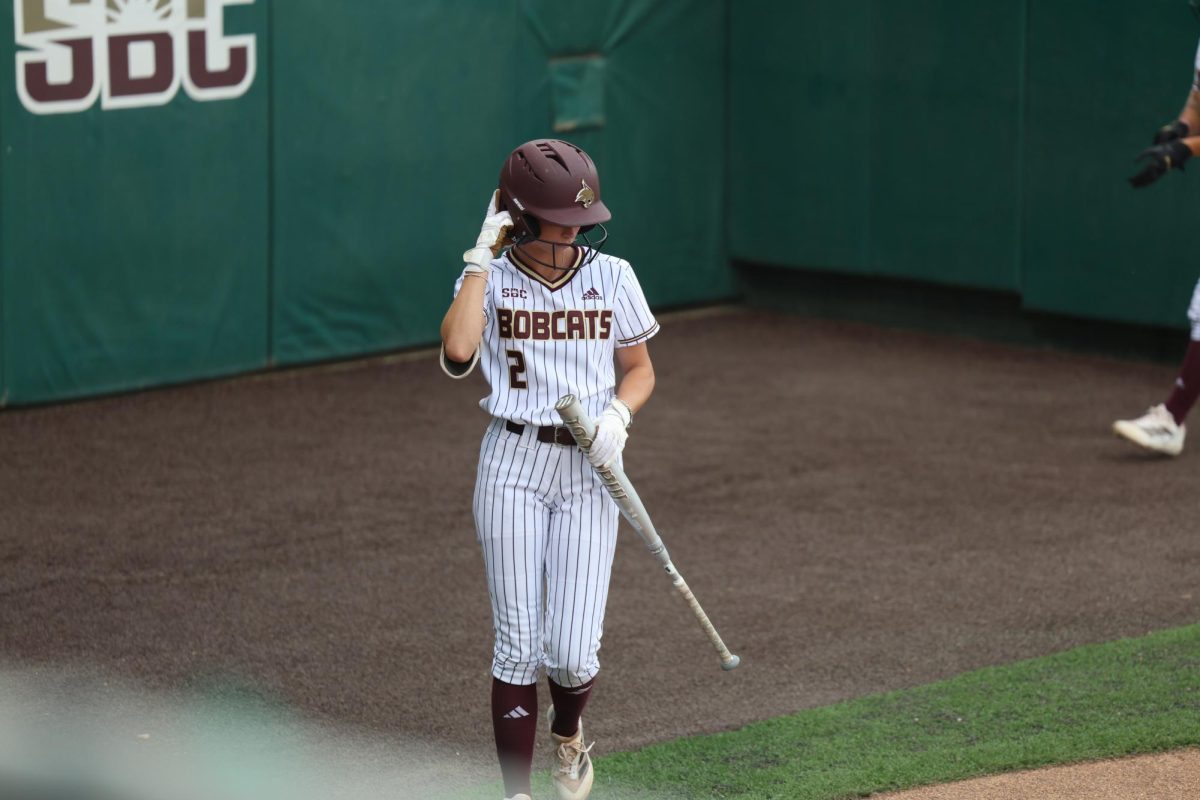Sports are often considered a microcosm of the larger world that surrounds it. With the growing popularity of pop culture, it was only a matter of time before it bled into modern sports culture in some form.
Esports can be considered the prime example, but following closely and more quietly behind it is Quidditch.
Quidditch was born from the wildly popular “Harry Potter” book series, one of the biggest staples of modern culture. Established in 2005 by Middlebury College freshman Xander Manshel, the sport has since grown in popularity. By 2011, the sport was on its fifth World Cup which hosted 96 teams. The sport is a mix of both collegiate and club teams and has now spread to several different regions of the world. In its sixth year of existence, Texas State University’s Quidditch club is ranked No. 1 nationally among college teams and No. 2 overall among college and community teams.
For many, the most obvious reason for showing interest in the team is the tie to “Harry Potter.”
Jenna Bollweg, international studies senior and team president, will be the first to admit that it was her love for the ‘boy who lived’ that piqued her interest.
“A lot of people join because they love ‘Harry Potter,’ like myself,” Bollweg said. “I played lacrosse for seven years, I have a background in sports. I love full contact sports, but I joined because I figured it’d be extra cardio and I loved ‘Harry Potter.’”
Fandom aside, many of the team members joining for the athletic benefits of playing the game.
“We have people that have literally never seen the movies or read the books in their lives,” Bollweg said. “Some people just join because they love the physicality of it all and the athletic aspect of it.”
Steven Gralinski, chemistry senior and team captain, has been on the team for five years, and unlike Bollweg wasn’t initially drawn to the team for the Harry Potter connection.
“I actually just started because I wanted to stay in shape,” Gralinski said. “I really just fell in love with the sport, all the people that I met and the Quidditch community.”
For Gralinski, from his first year to now, things have changed and with the new batch of members coming in. The team captain understands the important role team play in helping recruit and mentor new members.
“We rely on our veteran players and our older members to coach the younger players because I’m just one person and we had 110 people,” Gralinski said.
While Quidditch has gained a certain level of respect since its creation, there are still those who challenge whether it has the right to be called a sport. The team president’s response to that criticism was stern and unwavering.
“I always say I played lacrosse for seven years and I played ice hockey for pretty much all my life,” Bollweg said. “(People) think Quidditch is a fake sport, say it’s not a real sport, I accept that. (Those were) my first impressions too, but I always say that being on the team has given me more of a thrill than lacrosse or hockey ever did.”
Part of what makes the Quidditch club unique is the ways in which it ties itself back to the fictional sport. One of the most popular activities in the books is getting judged by the sorting hat.
In the series, the sorting hat was used to designate which school house each student was assigned to. The quiz is one of the requirements when joining the Quidditch team. Bollweg put together the team’s quiz.
“I based it off a lot of other personality quizzes, like the MBTI, the Myers-Briggs one and I took aspects of that and made my own questions,” Bollweg said. “At the end of it I have an algorithm that tells me who got the most points in Hufflepuff or Griffindor or whatever.”
One of the more unconventional items involved in play is the broomstick, which players must be on the entire game.
“Most people, whenever they come out, they’ll stumble on their brooms, or they’re running it’ll go flying out,” Gralinski said. “After a while it becomes mastered pretty easily and it’s like it’s not even there.”
The club prides itself in it’s all inclusive nature and uses that as their primary pitch to potential new members.
“When I describe Quidditch I talk about how its full-contact, so it’s just like rugby,” Bollweg said. “You can tackle people regardless of their gender cause we’re a very inclusive sport so we’re all about accepting people of all genders and backgrounds.”
Quidditch gaining momentum
September 27, 2017
0
Donate to The University Star
Your donation will support the student journalists of Texas State University. Your contribution will allow us to purchase equipment and cover our annual website hosting costs.
More to Discover









